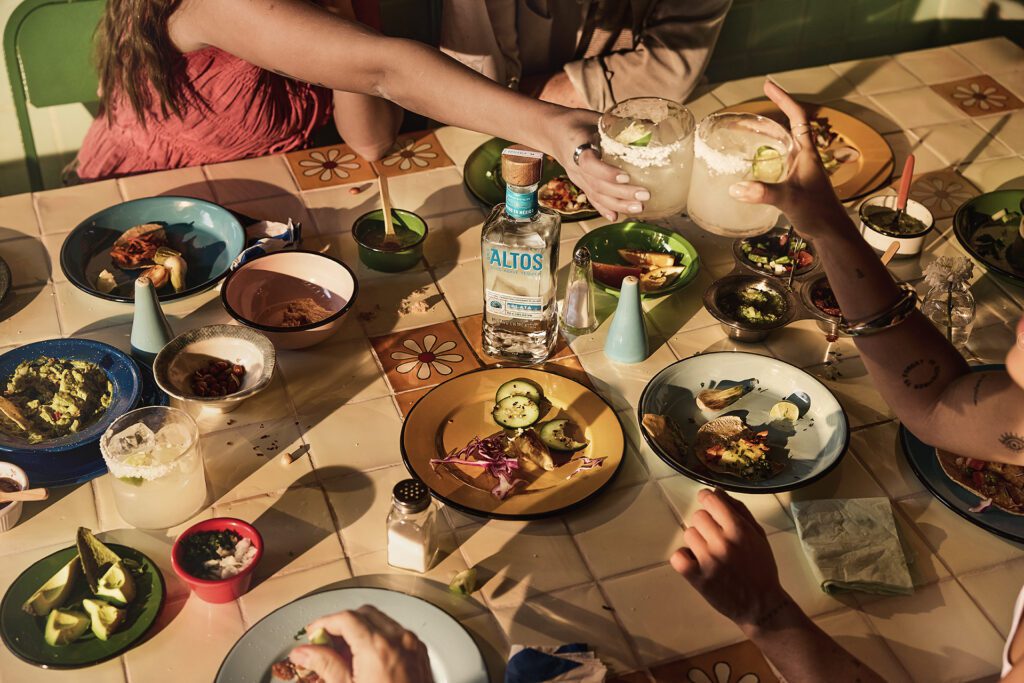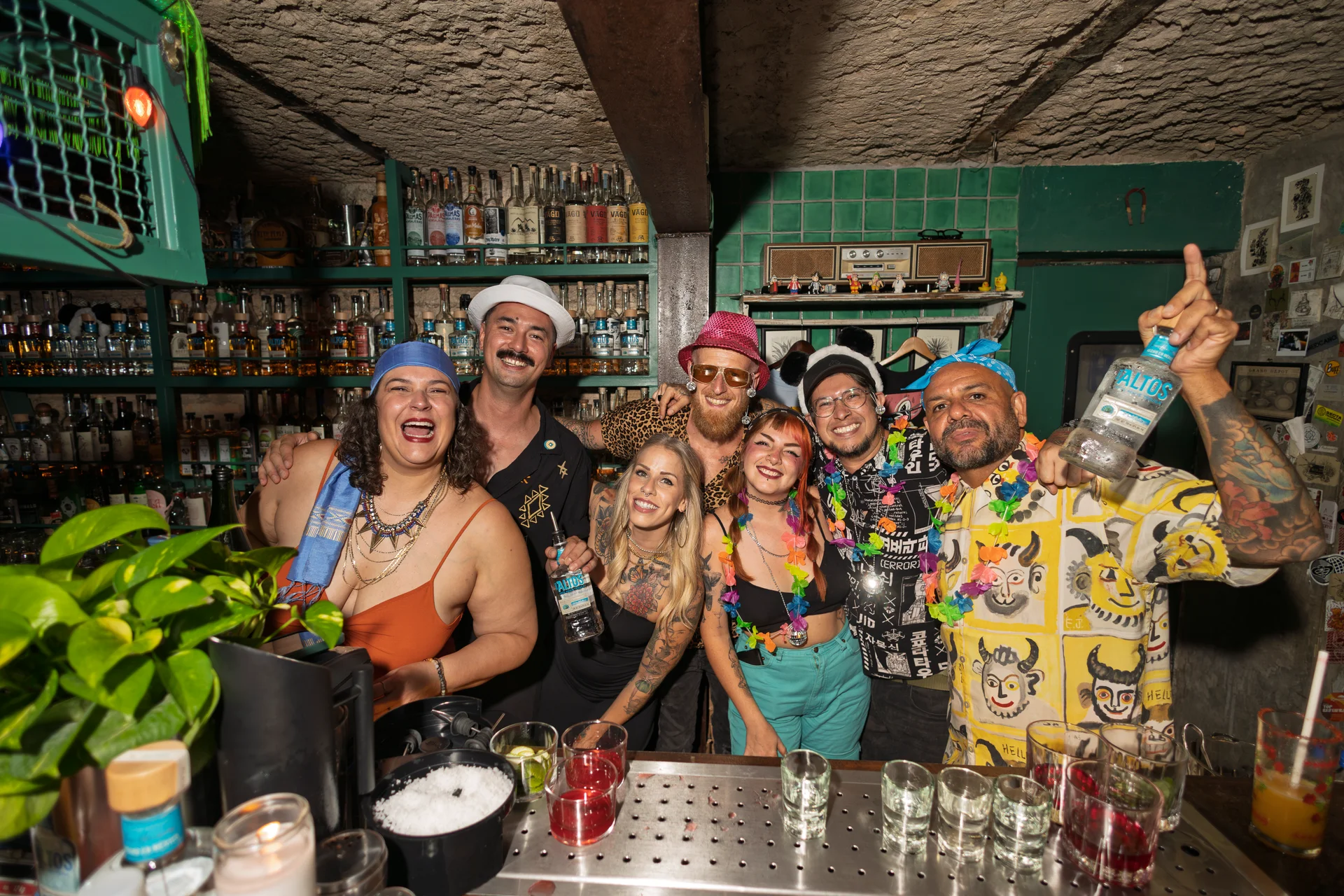Despite being a relatively new country, Mexico feels far more ancient than its 200 or so years.
You can feel the rumblings of civilisations centuries past underfoot. Ancestral traditions that are shaped by the land and pre-Hispanic cultures are proudly upheld. The lakebed Mexico City is built upon warps the streets as a seismic reminder of its presence. The behemoth ruins of Teotihuacán loom vast besides the urban landscape and jungle flora spills from the biophilic awnings of the awe-inspiring architecture. It is the greenest city I have ever seen. The new cannot suppress the old; the nature of things permeates the modern every day life with raw, musical energy. And nowhere is this exemplified better than in Mexico’s most ebullient export: tequila.
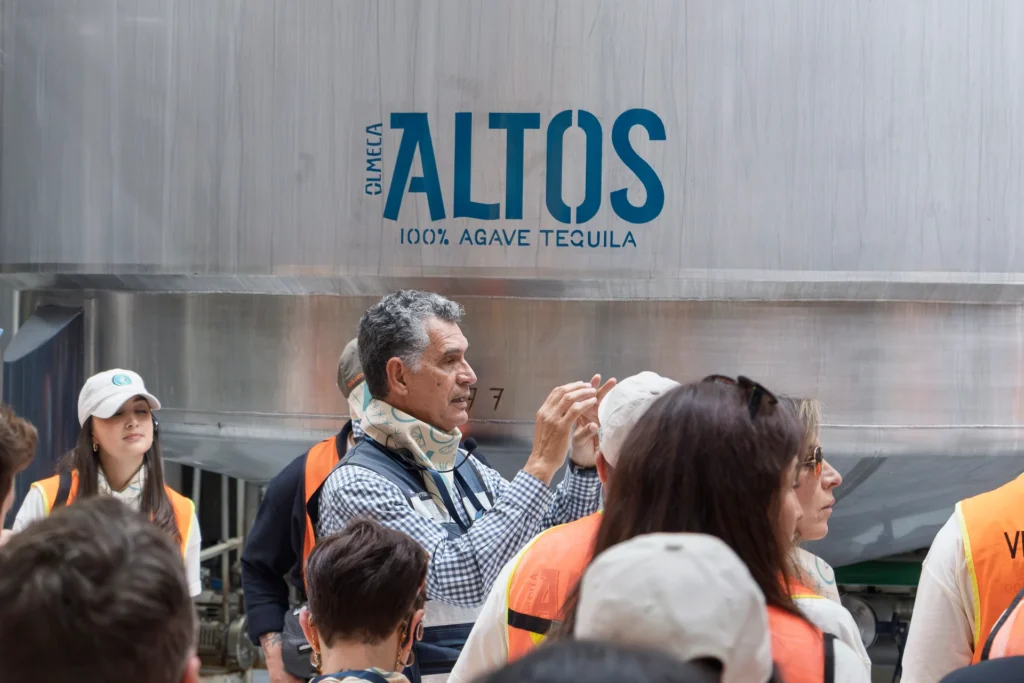
Tequila has come into its own as of late. It is deservedly recognised as a refined, complex spirit, revered by makers and drinkers alike. Olmeca Altos is one such maker. It was founded by two world renowned bartenders who had raw and ready knowledge of tequila and its many expressions. Dré Masso and the late, great Henry Bessant met with master distiller Jesús Hernández in 2009 and combined their acumen and ideals to create an exquisite tequila made for sipping, not slamming.
The Altos ethos is to celebrate the Spirit of the Maker, as they call it. Credence is given to the distillers and mixologists who spark the initial chain of events that culminates in an electrifying tipple. It draws strength from history and provenance, blending traditional and modern techniques to create something novel. The tequila is produced in the heart of Los Altos, Jalisco and the specific altitude, mineral-rich reddened soil and mythical genius of Jesús Hernández imparts a uniquely balanced citrusy, fruity and sweet flavour profile to the tequila.
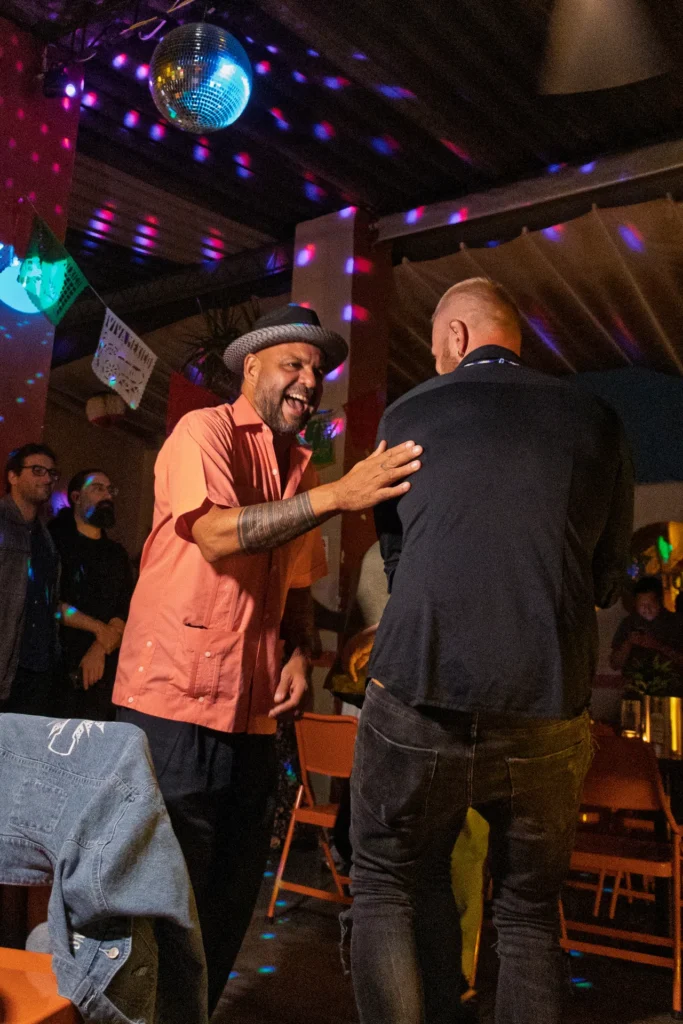
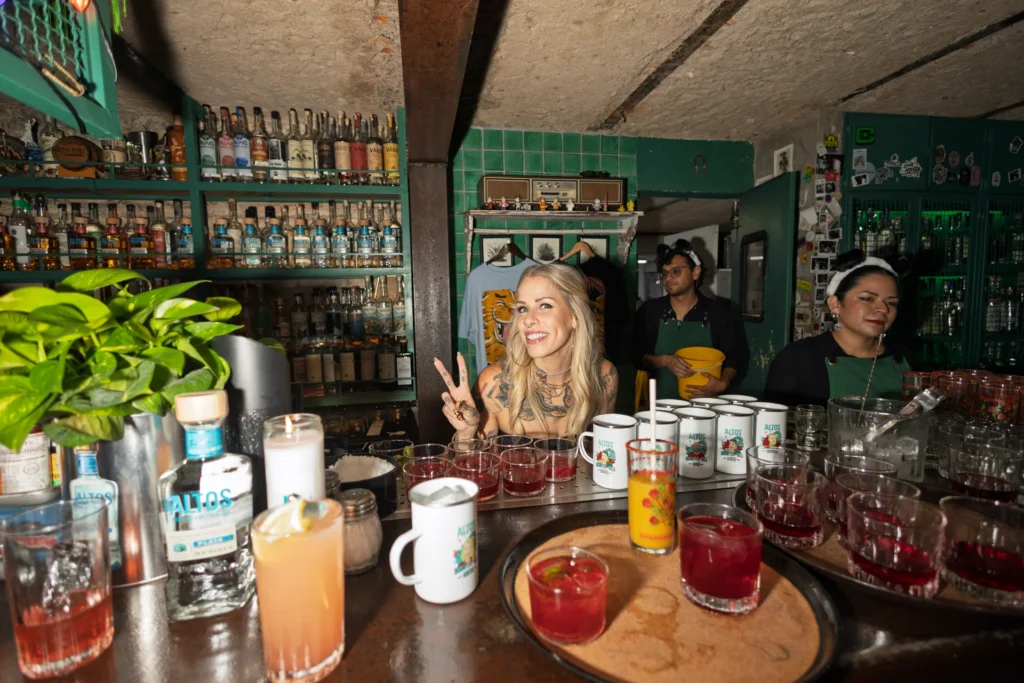
A key feature of Altos is its use of a 500 year old technique, using a Tahona stone wheel to crush the cooked agave. There is a profound contrast between the cutting edge technology that towers over you in the Altos distillery, and the ancient volcanic rock that rumbles at its core. Thousands of years of cultivating and harnessing agave have led to this process. Huge machines operate throughout the factory, distilling, filtering, bottling; and yet the crucial step of unlocking the agave is performed using a stone wheel. Not only that, the motion of the rock is dictated by a machine that emulates the gait of a horse. Jesús Hernández approaches the stone and it stops turning. It has a proximity censor.
“This horse is very obedient, but it doesn’t like people being too close.”
The maestro is deeply entrenched in the Jalisco region. He pioneered the resurrection of the Tahona technique and opts for has a staunch reverence for the land, insisting on greener methods over more lucrative and destructive advancements. Rather than guard his methodology, he shares them with competing distillers so then can all minimise their environmental impact.
“I live in Arandas, I want to make sure there is something here for my children, my grandchildren.”
Jesús Hernández, Master Distiller, Olmeca Altos
Beyond perfecting the liquor itself, Altos is a community-focussed entity in the drinks industry. They promote eco-conscious innovation by way of their Tahona Society initiative and join the dots between different bar cultures the world over. This community of bartenders champions education, mentorship and global connection and this culminates in the biannual Tahona Society Competition. Every two years they invite bartenders from all over the world to pitch their own storied visions of sustainability. $50,000 of funding is awarded to the winner. The competition is less about accolades and more about amplifying ideas that can reshape the culture of hospitality.
This year’s edition coincided with the roll out of The Tahona Society’s online platform. It broadens the reach of The Tahona Society across the globe, granting bartenders access to all manner industry resources.
Held in Guadalajara, the fourth edition of Altos’ sustainability-focused competition brought together 11 finalists from nine countries, including the US, Australia, Colombia, Canada, the UK and Italy. This year’s event reached a major milestone by neutralising 100% of its measured emissions. That was achieved through a mix of greener purchasing, energy efficiency and certified offset projects, alongside a recycling plan that ensured every bit of glass waste was separated and reused.
Guest shifts from bartenders at Katana Kitten (New York) and Café de Nadie (Mexico) – both among the World’s 50 Best Bars – kept the evenings divinely lubricated, while industry heavyweights like Iain McPherson (Panda & Sons), Christine Wiseman (Bar Lab Hospitality) and Kate Boushel (Barroco Group) led workshops and discussions.
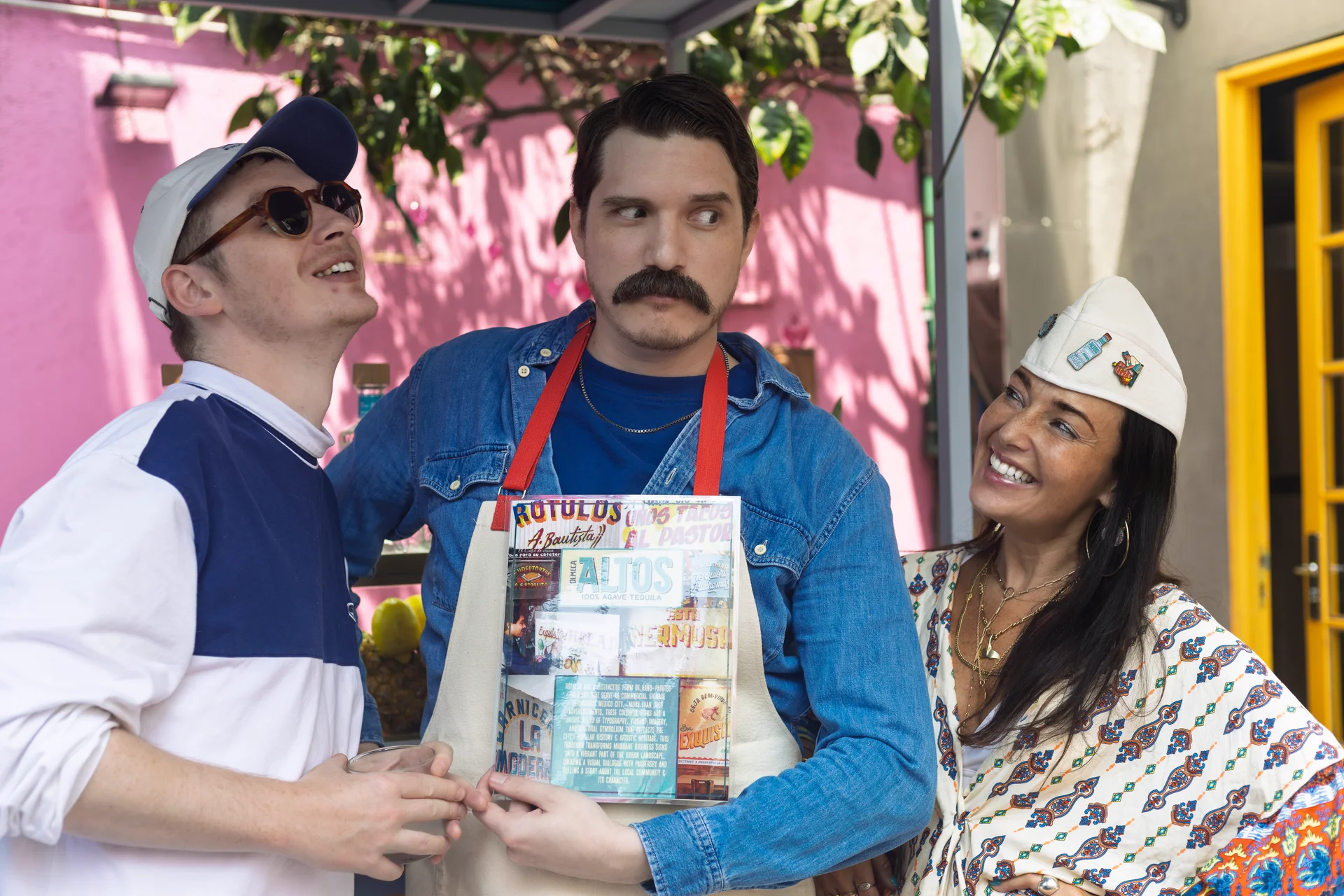
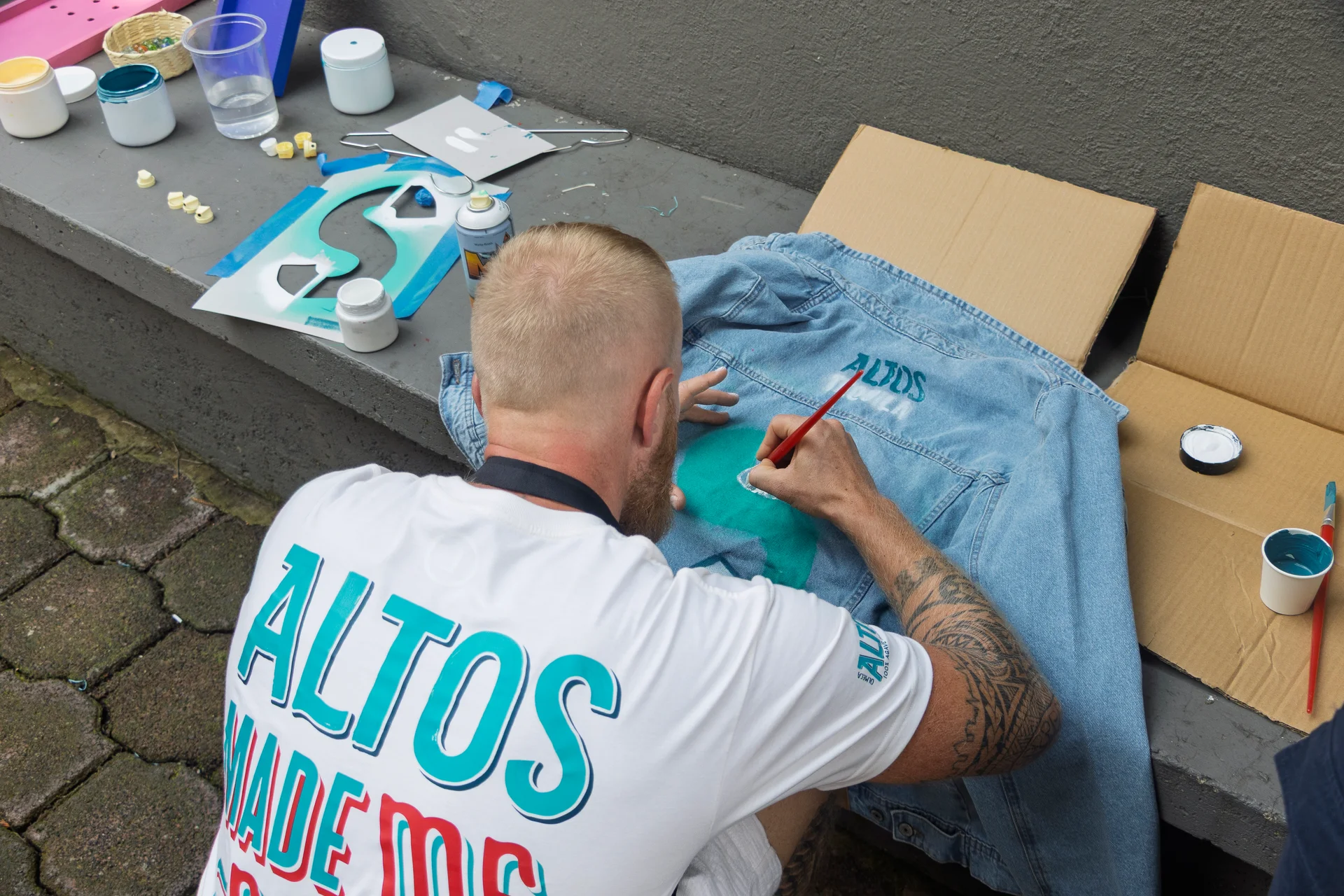
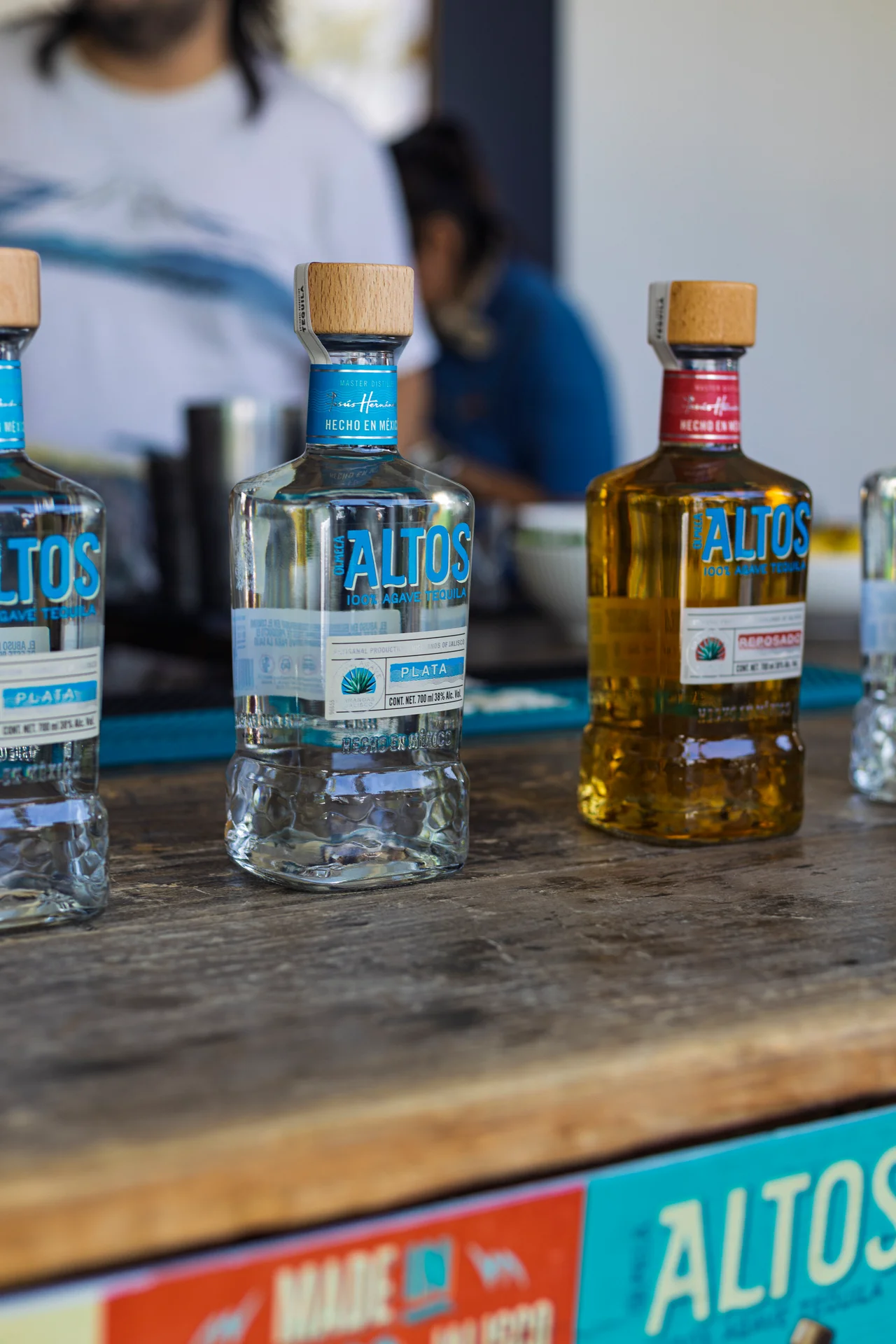
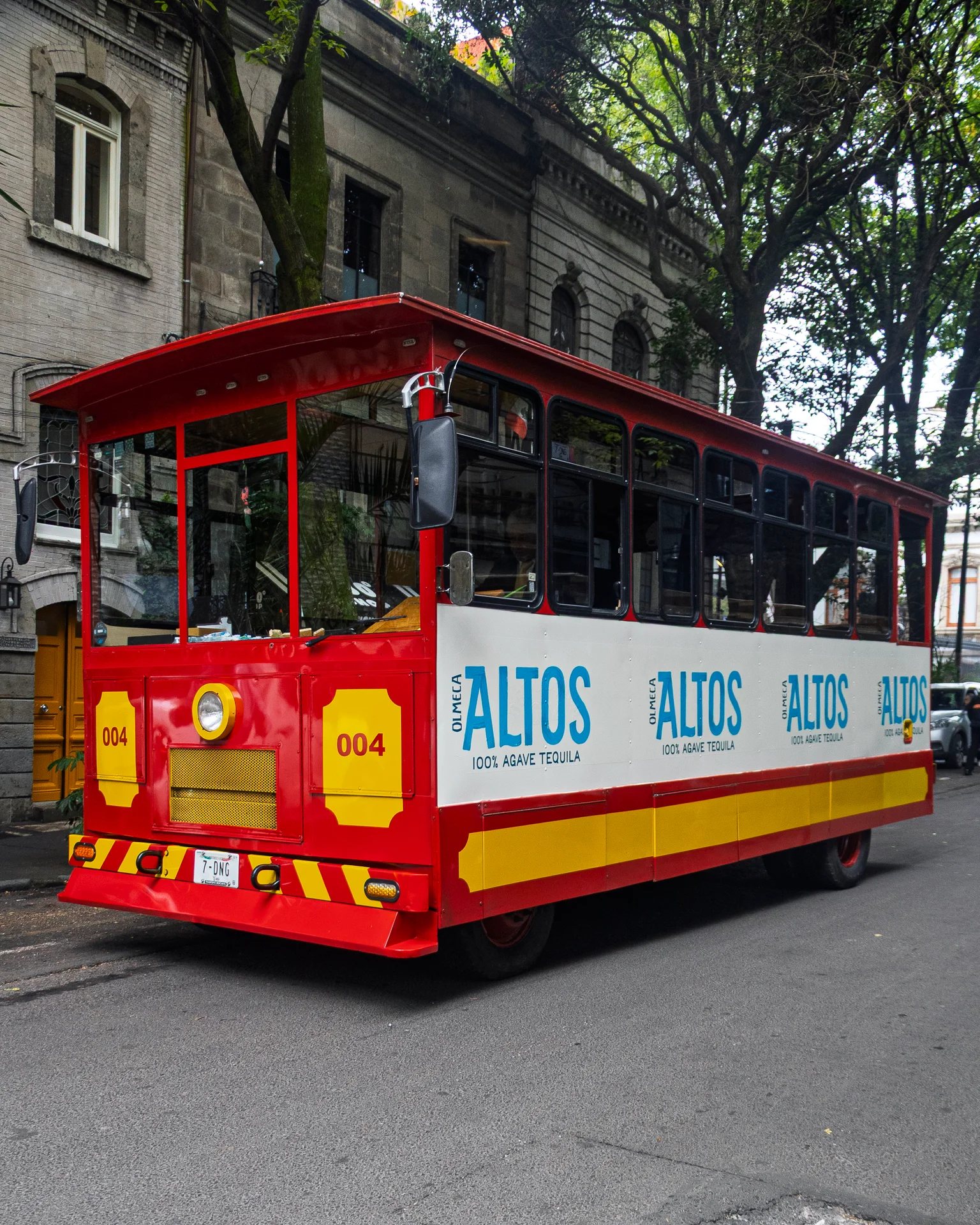
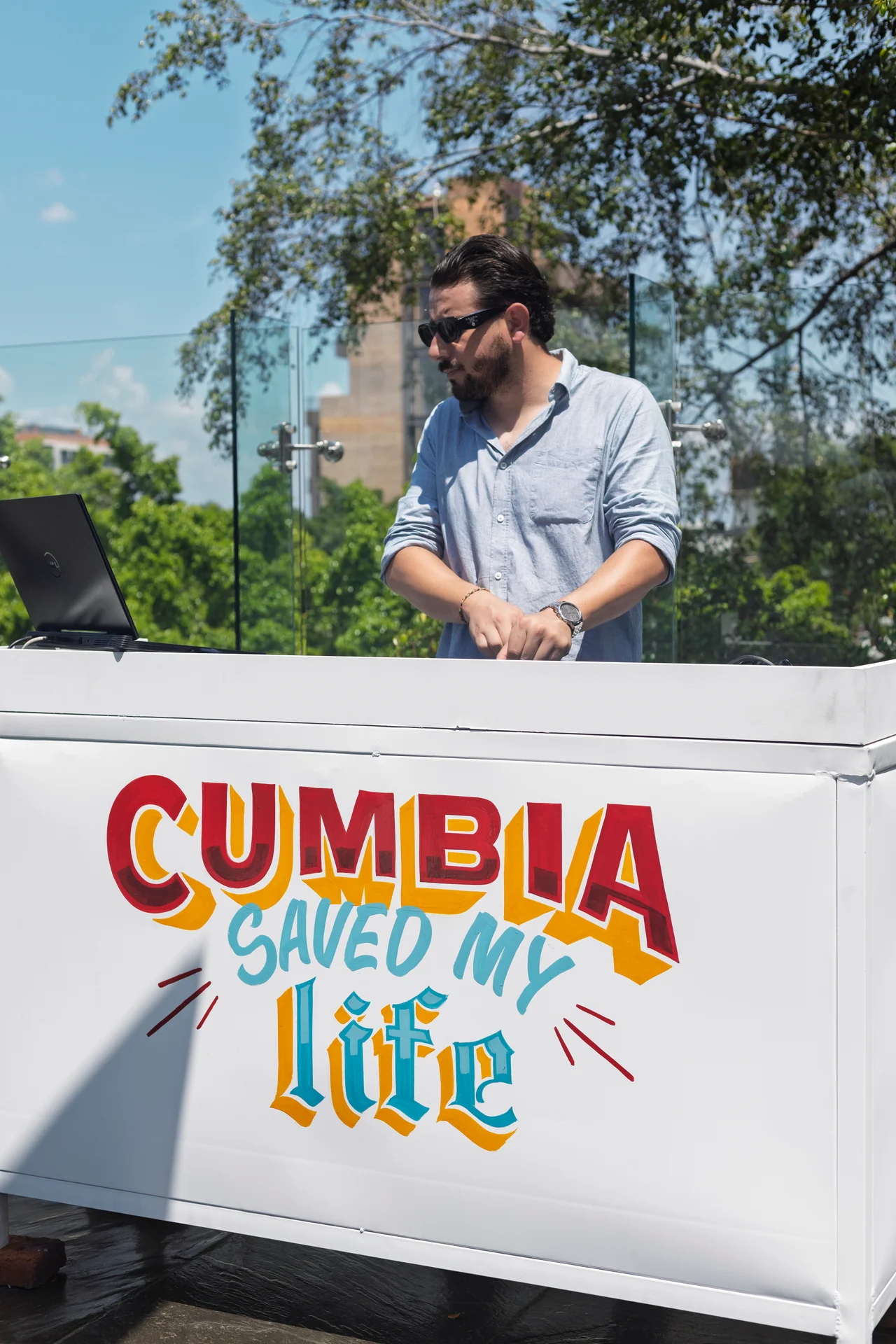
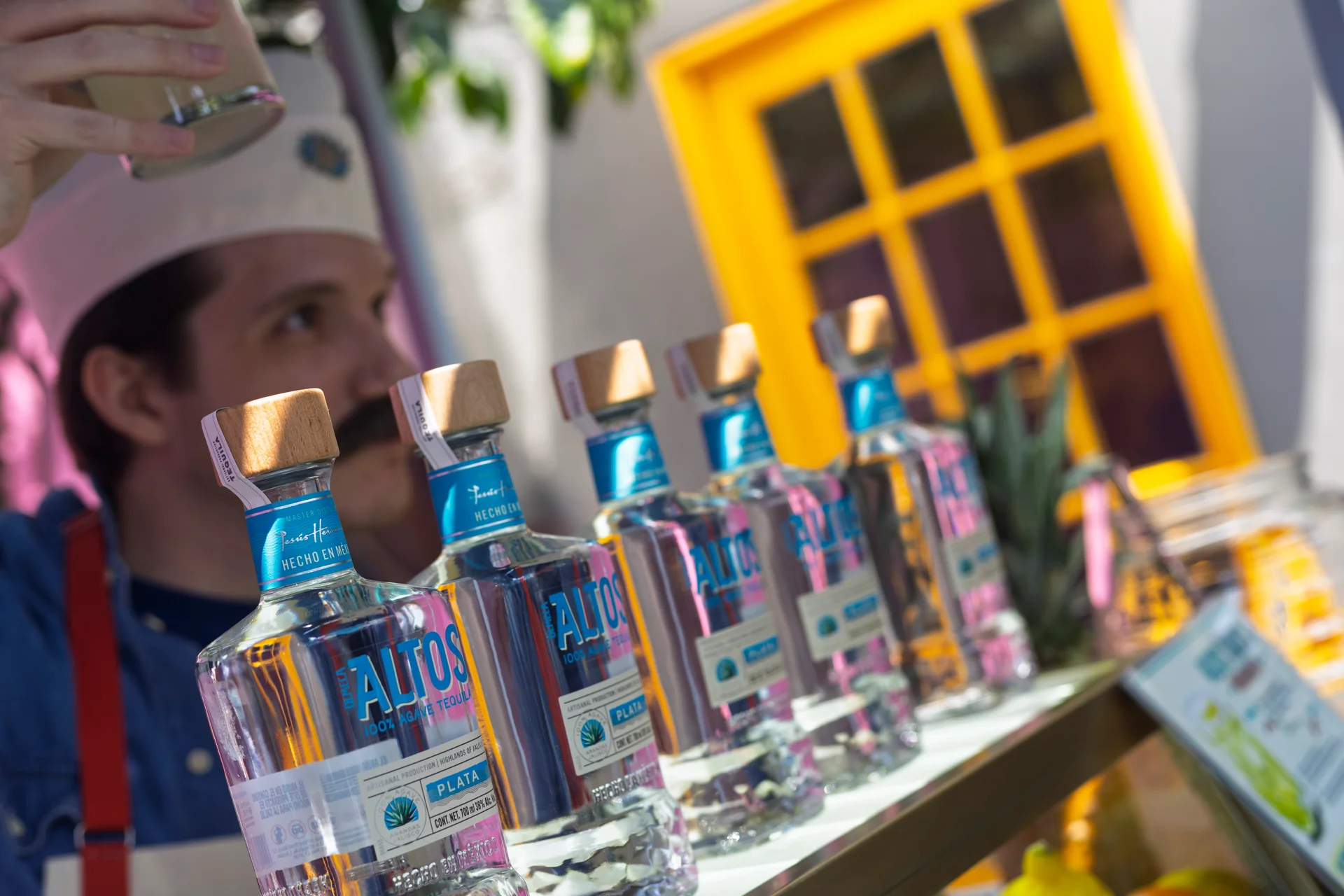
Award-winning mixologist, pastry chef and entrepreneur Christina Mercado (USA) took the top prize with C-Sweet – an innovative line of sugar-alternative syrups that reimagined how sweetness can work in cocktails.
“C-Sweet was about reimagining sweetness in beverages in a way that respects both people and the planet,” said Mercado. “Winning the Altos Tahona Society Competition gave me the chance to scale that vision – to bring healthier, more sustainable choices to bars, coffee shops and homes everywhere.”
Her journey to the title included months of mentorship with social entrepreneurship expert Valerie Kramis, founder of Agenda28, culminating in four days of workshops and live pitches.
Other standout ideas were also recognised. Christina Botero of Colombia won the Crowd Favourite Award and $5,000 USD for Shaking Lives, a project empowering young people from vulnerable communities through hospitality training. Audrey Hands and Lucia Gonzalez of Mexico received the Coaching Prize for Brindemos Bienestar, a digital platform promoting wellbeing in the industry.
Altos have now redesigned their bottle to better suit their philosophies. The first iteration was wonderfully refined but it wasn’t Altos. This is a drink born of ancient plants and sacred practices. The glass is now rendered raw, almost pebble-like, to resemble the volcanic rock of the land, and the ancient wheels that crush the agave within. The weight has been reduced not only for practical purposes (even now, it boasts a satisfying heft) but to reduce the burden of its carbon footprint.
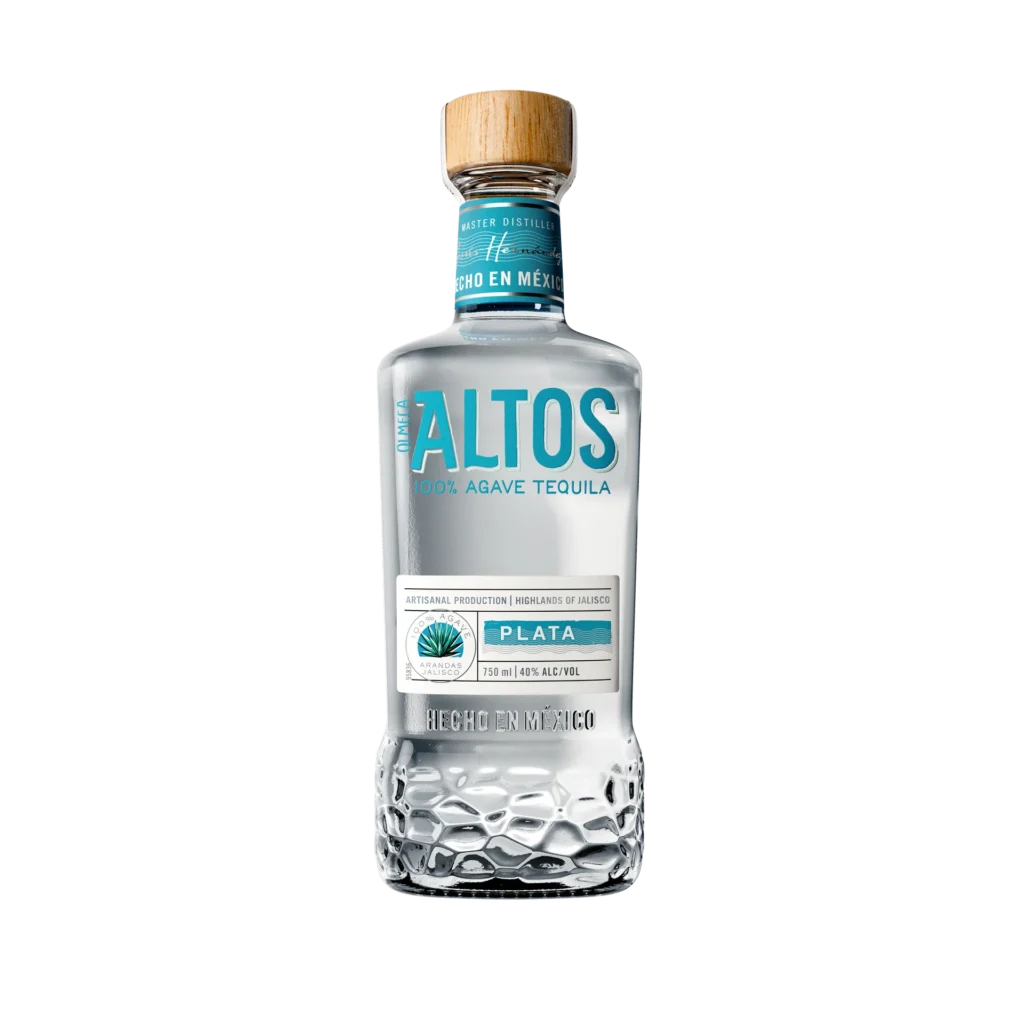
Inspired by Mexico’s vibrant rótulos – hand-painted street signs known for their expressive character and typography – the new bottle celebrates the Maker Spirit at the heart of Altos’ artisanal process, bringing the brand’s heritage to life visually, while paying homage to Mexican culture.
Olmeca Altos tequila has now surpassed one million cases sold globally – an extraordinary achievement for a brand that continues to champion authenticity, craftsmanship and environmental stewardship. Yet despite its commercial success, Altos still feels refreshingly human at heart. Every bottle tells a story of collaboration and conscience, from the red earth of Jalisco to the hands that shape the glass. It’s a spirit that honours the past while looking to the future, proving that progress doesn’t have to come at the expense of tradition. In an age of speed and excess, Altos stands for something slower, truer, more elemental. It is a toast to the dreamers, the makers and the land that sustains them.
